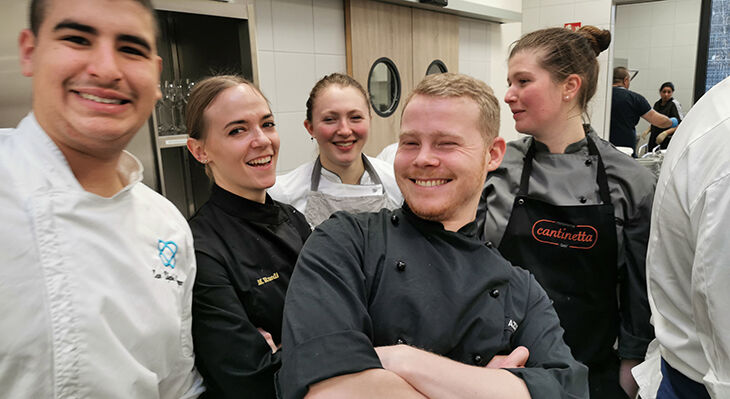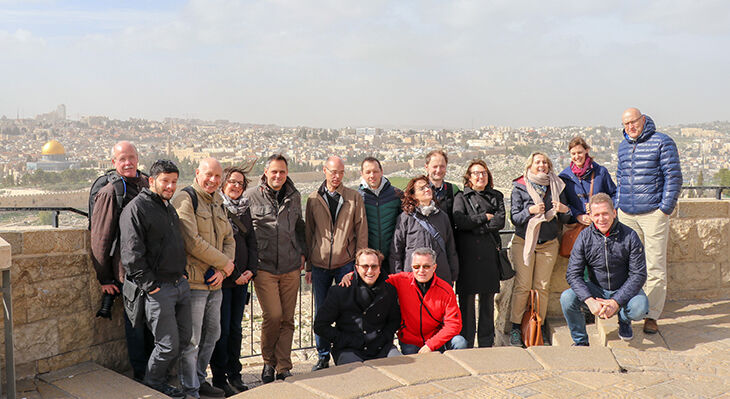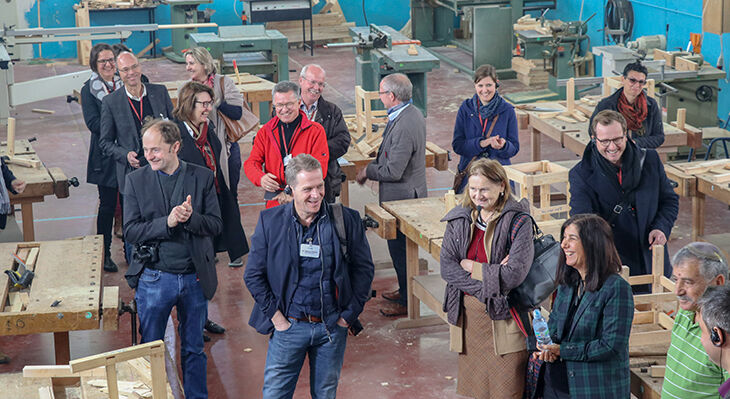German-Israeli Programme for Cooperation in Vocational Education and Training: Creating prospects together
Germany and Israel have very different vocational education and training systems, but the challenges are similar. At the “German-Israeli Forum”, representatives from the German Ministry of Education and the Israeli Ministry of Labour discussed priority areas for future cooperation.

The vocational education and training systems in Germany and Israel are extremely different. However, when it comes to matters of vocational education and the recruitment of skilled professionals, common themes quickly emerge: quality assurance, inclusion, the shortage of specialists, and the attractiveness and permeability of vocational and university education. The “German-Israeli Forum 2020” highlighted the importance of education policy exchange for the two countries. On 9 and 10 November, high-ranking representatives of the Israeli Ministry of Labour, Social Affairs and Social Services (MOLSA) and the German Federal Ministry of Education and Research (BMBF) met virtually to reflect on the current status of the cooperation and address new topics. COVID-19 is presenting major challenges for vocational education and training. Exchange and collaboration with Germany could contribute to addressing these challenges and shaping our future, emphasised Mordechai Elisha, General Director of the Israeli Ministry of Labour, Social Affairs and Social Services (MOLSA).
The German-Israeli Programme is a success story. It is marked by more than 50 years of close cooperation in the fields of education and research. We are very pleased that we from GOVET will now implement the programme on behalf of the Ministry of Education and Resarch
Dr. Hannelore Kress, Coordinator of the German-Israeli Programme, GOVET
The partners took stock of the past year. Together, they implemented an exchange programme for German IT trainees in Israel and one for aspiring Israeli cooks in Germany’s culinary sector. A study tour allowed Israeli TVET experts to gain an insight into Work 4.0 in Germany.
Like Germany, Israel is developing a qualification framework that will make it easier to compare and classify qualifications as well as enhance their transparency. German TVET experts from the Federal Institute for Vocational Education and Training (BIBB), the Standing Conference of Ministers of Education and Cultural Affairs and the Forschungsinstitut Betriebliche Bildung (Research Institute for Vocational Training, f-bb) presented information on this topic. A virtual “exploring mission” completed the forum. Video statements from trainees and trainers in the mechatronics field at the ABB Training Centre in Berlin and the micro-technology field at the Ferdinand-Braun-Institut gave an insight into the practical implementation of the German qualification framework and the topic of permeability in the German TVET system. The University of Applied Sciences (HTW) and Chamber of Crafts in Berlin presented the vocational orientation project “O ja”, which offers young people a vocational orientation year in the fields of building technology, electronics and woodworking. Further information (in German only) is available on the website of HTW Berlin.
The German-Israeli Programme for Cooperation in Vocational Education and Training (Israel Programme) is a bilateral cooperation and funding programme between the MOLSA and BMBF. The two sides can build on a long-running, close partnership. Since it started in 1969, the German-Israeli Programme for Cooperation in Vocational Education and Training has enabled continuous discussion of developments in vocational education and training in the two countries. The programme has both given rise to various personal encounters and fostered mutual trust. Education and research have shaped the building of diplomatic relationships between Israel and Germany and remain one of their prominent areas of cooperation to this day.
Learning from each other is the mission statement of our bilateral programme. By mutual exchange, our participants expand their professional knowledge, skills and attitudes, and profoundly enrich their understanding of the other country. For VET students and advanced experts alike, this is a milestone experience.
Birgit Thomann, Head of Department International VET Cooperation, Federal Institute for Vocational Education and Training, BIBB
In October 2020, the German Office for International Cooperation in Vocational Education and Training (GOVET) at BIBB took over responsibility for the technical implementation of the German-Israeli Programme for Cooperation in Vocational Education and Training for the German Federal Ministry of Education and Research (BMBF). Dr Hannelore Kress is the contact person at GOVET for all questions relating to the programme.
The German-Israeli Program is an important platform for knowledge sharing and for the development of joint solutions. While COVID-19 poses vast challenges for systems of vocational education, mutual exchange is crucial in order to respond to them and to shape our future.
Mordechai Elisha, Director General of Labor Division, Ministry of Labor und Social Affairs (MOLSA)
From 2013 until 2020, the National Agency Education for Europe at BIBB (NA at BIBB) successfully ran the programme. A milestone during this period was the 50th anniversary of the programme, which was accompanied by numerous activities on both the German and Israeli side. A joint website provides information about the anniversary year. The German-Israeli Programme for Cooperation in Vocational Education promotes:
- Exchange programmes for trainees
- Study tours for TVET experts
- Cooperation in scientific project teams and
- Seminars and conferences on current TVET topics
Since 2011, the basis for this cooperation has been the intergovernmental agreement on industry-driven research and development and on vocational education and training.


